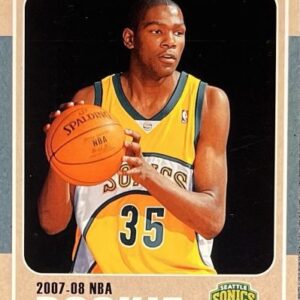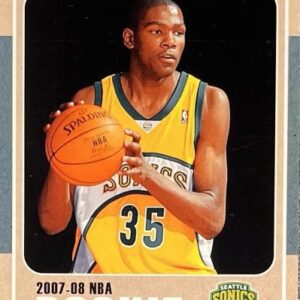In a twist that could be ripped from a Hollywood thriller or the feverish imagination of a noir novelist, a tale of deception and lost fortunes has emerged from the least likely of places: a Best Western hotel. Picture this: Memory Lane Inc., a reputable California auction house, carefully ships a treasure trove of vintage sports cards, including a 1909 Ramly Walter Johnson card and a 1941 Ted Williams card—a tantalizing package with a shared value flirting with $90,000. The cards, set to be delivered to the Best Western Plus in Strongsville, Ohio, never made it into the hands of their intended recipient. Cue the suspenseful music.
The plot thickens as hotel staffer Jacob Paxton is implicated. Instead of ensuring these delicate pieces of sports history reached their intended destination, Paxton decided to take a detour down personal gain avenue. The cards, as it turned out, were the perfect bait—irresistible to those with an unsavory penchant for memorabilia misappropriation. Paxton, now decidedly out of a job, faces several long years contemplating his choices from behind bars, while his accomplice, Jason Bowling, gets the relative softness of community supervision.
In this real-world game of Clue, the sports collecting community finds itself both astonished and on high alert. Memory Lane, having lost more than just money, felt the sting of reputational damage in a business built on trust. Sports card collecting isn’t just about the cards; it’s a tapestry woven from the stories and histories of the stars captured on thin pieces of cardboard. For collectors and dealers, securing these pieces of history is vital, and this isn’t the first time they’ve had to deal with theft.
Their lawsuit against Best Western International and its local operators isn’t just an attempt to recuperate financial losses. The suit pointedly accuses the hotel chain of gross negligence. In their eyes, employing someone who should never have been trusted with valuable guests’ property, let alone escorting irreplaceable sports history, could have been avoided. With Best Western’s hefty annual revenue and its global size, the stakes couldn’t feel higher. Depending on the outcome, the chain could set a precedent regarding how hotels, and by association shipping partners, manage high-value goods henceforth.
The saga, however, extends beyond hotel lobbies and into the bustling, often dazzling world of sports card conventions. Take the National Sports Collectors Convention, for instance. For two consecutive years, this grand gathering of enthusiasts has also become the stage for audacious, coordinated thefts. Stolen were idols of the collectibles world, including the rookie cards of Mickey Mantle and Michael Jordan. Despite beefed-up security measures, these elusive treasures continue to mesmerize criminals with an eye for a payday.
Why are these tangible memories of athletic grandeur suddenly such high-profile targets? The nostalgia-fueled boom in their value has made them the silicon chips of the collectibles world, soaring in worth faster than a home run can clear the outfield. A hobby that once united fans with their childhood heroes now stands vulnerable to calculated pilferage.
But even as threats mount, collectors refuse to be cowed. The community’s response has been swift and seriously high-tech. Gone are the days when a simple locked draw would suffice. Today’s scene involves an upgraded fortification: steel-reinforced cases, a spider web of cameras, and grippingly expanded insurance policies. Simply put, the notion of securing one’s investments has never been more literal.
As the case proceeds, one can’t help but imagine it will reshape the contours of accountability. A hotel overlooked a detail, and a thief saw an opportunity. Should all involved parties bear the financial and ethical weight of such an oversight? As this narrative unfolds in the halls of justice, Memory Lane, and indeed the broader collecting fraternity, argues that what was once unthinkable is now imperative: valuable cardboard needs protection akin to that reserved for fine art and jewelry.
This tale, raw and real, offers an unequivocal message: the era of the unguarded treasure hunt is over. Collectors are adapting, ensuring their passions are protected just as fiercely as they’re cherished. The sports card heist of Strongsville is a reminder—a dramatic illustration of what’s at risk and what’s necessary to protect it in this age of booming bullion board rivals and the occasionally shadowy people who covet them.





